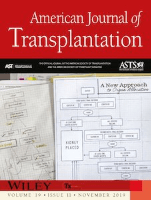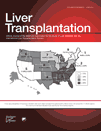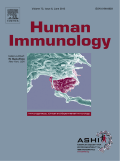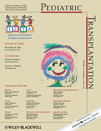
Experimental and Clinical Transplantation
Scope & Guideline
Advancing Transplantation Through Innovative Research
Introduction
Aims and Scopes
- Clinical Outcomes in Transplantation:
Research that evaluates patient outcomes post-transplantation, including survival rates, quality of life, and complications associated with various transplant procedures. - Innovative Surgical Techniques:
Exploration of new surgical methods and techniques in organ transplantation, aiming to enhance surgical efficacy and patient safety, as well as to address complications. - Immunology and Rejection Mechanisms:
Studies that investigate the immunological aspects of transplantation, including mechanisms of rejection, immunosuppressive strategies, and the role of genetic factors in transplant success. - Transplantation in Special Populations:
Research focusing on transplantation in specific demographics such as pediatric patients, elderly patients, and those with comorbidities, providing insights into tailored approaches for different patient needs. - Emerging Infectious Diseases and Transplantation:
Studies examining the impact of infectious diseases, such as COVID-19, on transplant recipients, and the implications for management and outcomes. - Ethical and Social Perspectives:
Research addressing the ethical, legal, and social implications of organ donation and transplantation, including public perception and policy considerations.
Trending and Emerging
- Impact of COVID-19 on Transplantation:
A significant increase in research addressing the effects of the COVID-19 pandemic on organ transplantation, including infection risks, management strategies, and vaccination outcomes for transplant recipients. - Machine Perfusion and Organ Preservation Advances:
Growing interest in machine perfusion techniques and their benefits for organ preservation and transplantation outcomes, marking a shift towards more sophisticated preservation methods. - Personalized Medicine in Transplantation:
Emergence of research focusing on personalized approaches to transplant medicine, including genetic profiling and individualized immunosuppressive regimens tailored to patient needs. - Transplantation for Hepatocellular Carcinoma:
Increased focus on liver transplantation for patients with hepatocellular carcinoma, including studies on selection criteria, outcomes, and innovative management strategies. - Psychosocial Aspects of Transplantation:
Rising interest in the psychological and social dimensions of transplantation, including the mental health of recipients and donors, and the overall impact on quality of life.
Declining or Waning
- Traditional Organ Preservation Techniques:
Research on classical organ preservation methods has decreased as newer techniques, such as machine perfusion, gain prominence, leading to a reduced emphasis on older preservation strategies. - Single-Organ Transplantation Studies:
There has been a noticeable decline in studies focusing solely on single-organ transplantation, with a growing trend towards combined organ transplants and multi-organ approaches. - Historical Perspectives in Transplantation:
Papers focusing on historical accounts and traditional practices in transplantation have waned as the field increasingly prioritizes contemporary research and applications.
Similar Journals

Current Transplantation Reports
Empowering Healthcare Through Transplantation KnowledgeCurrent Transplantation Reports, published by SpringerNature, is a leading journal in the field of transplantation science, offering vital insights into the cutting-edge developments in transplant medicine and related disciplines. With an impressive array of quartile rankings, including Q2 in Nephrology and Transplantation, and Q3 in Hepatology and Immunology for 2023, this journal plays a significant role in bridging research and clinical practice. Focused on fostering innovation, the journal spans a wide spectrum of topics, from surgical advances to immunological considerations of transplant procedures. It serves as an invaluable resource for researchers, healthcare professionals, and students interested in the latest advancements and data in transplantation, recognizing the importance of disseminating knowledge in this evolving field. Although currently not designated as Open Access, it provides rigorous peer-reviewed articles that contribute to the academic community's understanding of transplantation scenarios and challenges faced in clinical settings.

Transplantation Direct
Bridging Knowledge Gaps in Organ TransplantationTransplantation Direct is a leading open access journal in the field of transplantation, published by the prestigious Lippincott Williams & Wilkins. Since its inception in 2015, the journal has provided a vital platform for the dissemination of high-quality research and advancements related to organ transplantation. With an impact factor that places it in the Q2 category among transplantation journals, it ranks #22 out of 54 in the Medicine - Transplantation Scopus classification, reflecting its significance and authority within the discipline. The journal not only covers a broad scope of topics related to transplantation but also encourages global collaboration and knowledge exchange amongst researchers, clinicians, and students. With its open access model, Transplantation Direct ensures that groundbreaking findings are accessible to a wider audience, fostering innovation and enhancing patient care worldwide. For more information, visit their address at TWO COMMERCE SQ, 2001 MARKET ST, PHILADELPHIA, PA 19103.

AMERICAN JOURNAL OF TRANSPLANTATION
Advancing transplantation science for a healthier tomorrow.American Journal of Transplantation, published by Elsevier Science Inc, is a premier academic journal dedicated to the critical field of transplantation. With an impressive impact factor and prestigious rankings in Immunology and Allergy, Pharmacology (medical), and Transplantation, it stands as a leading source of high-quality research in these domains, boasting a Q1 category status since 2023. The journal serves an essential role in advancing scientific knowledge and clinical practices, publishing cutting-edge studies that address pressing issues in organ transplantation and immunology. Researchers, healthcare professionals, and students will find valuable insights through rigorous peer-reviewed articles that focus on innovative methodologies, outcomes, and the latest developments within transplantation science. As the journal continues to evolve from its inception in 2001 to its ongoing contributions through 2024, it remains a key resource for those looking to stay at the forefront of transplantation research and practice.

LIVER TRANSPLANTATION
Transforming Lives Through Innovative Liver Science.LIVER TRANSPLANTATION, published by Lippincott Williams & Wilkins, stands at the forefront of hepatology and transplantation research, with a prestigious Q1 rating across the categories of Hepatology, Surgery, and Transplantation as of 2023. Since its inception in 2000, this journal has been dedicated to disseminating high-quality, cutting-edge research that advances the understanding and practice of liver transplantation. With an impressive ranking of 23rd out of 551 in Surgery and 9th out of 54 in Transplantation, it occupies an esteemed position in the academic landscape, attracting contributions from leading experts in the field. The journal's rigorous peer-review process ensures the publication of impactful studies, innovative clinical practices, and vital insights into patient management. By fostering a collaborative environment for researchers, clinicians, and students alike, LIVER TRANSPLANTATION serves as an essential resource for those engaged in the complexities of liver transplantation and related fields. Join the community committed to advancing liver health and transplantation science.

Transplantation and Cellular Therapy
Connecting Science and Practice in Transplantation and Immunology.Transplantation and Cellular Therapy is a leading journal published by Elsevier Science Inc, dedicated to advancing the fields of transplantation, immunology, cell biology, and molecular medicine. With its ISSN of 2666-6375 and E-ISSN 2666-6367, this journal serves as a vital resource for researchers, practitioners, and students aiming to stay at the forefront of innovative therapies and clinical practices in transplantation. As of 2023, it holds an impressive Q1 ranking in multiple categories, including Cell Biology, Hematology, Immunology and Allergy, Molecular Medicine, and Transplantation, reflecting its high impact and relevance in the scientific community. The journal, operating from its base in the Netherlands, supports Open Access publishing to enhance the dissemination and accessibility of groundbreaking research. Acknowledging the significance of transplantation and cellular therapies in modern medicine, Transplantation and Cellular Therapy is poised to propel future discoveries and developments in these critical domains.

XENOTRANSPLANTATION
Leading the Charge in Transplantation and ImmunologyXENOTRANSPLANTATION is a premier journal published by Wiley, dedicated to advancing the field of transplant medicine and immunology. Since its inception in 1994, this journal has provided a vital platform for researchers to disseminate groundbreaking studies and reviews, focusing on the complexities of xenotransplantation—the transplantation of organs and tissues from one species to another. With an impressive impact factor emphasizing its relevance, it has garnered recognition in the 2023 rankings, achieving Q1 status in the field of Transplantation and Q2 in Immunology. This positions it among the top journals, ranked #12 out of 54 in Transplantation and #102 out of 236 in Immunology, according to Scopus metrics. Despite being a subscription-based journal, its commitment to high-quality research ensures that it remains essential for professionals, researchers, and students seeking to innovate and facilitate progress in the increasingly critical area of organ transplantation. XENOTRANSPLANTATION is not just a journal; it is a crucial resource for fostering collaboration and knowledge in a field that continually shapes the future of medicine.

HUMAN IMMUNOLOGY
Elevating Understanding of Immune MechanismsHUMAN IMMUNOLOGY, published by Elsevier Science Inc, serves as a critical platform for disseminating research in the fields of immunology and allergy, as well as various aspects of miscellaneous medicine since its inception in 1980. With an ISSN of 0198-8859 and E-ISSN 1879-1166, this journal is pivotal for researchers and practitioners looking to advance their understanding of human immune responses and related conditions. The journal currently holds a respectable position within its field, as highlighted by its 2023 Scopus ranks—#114/233 in Immunology and Allergy and #132/236 in Immunology and Microbiology. Moreover, it maintains a Q2 quartile ranking in both Immunology and Allergy and miscellaneous Medicine, underscoring its influence and reach within the scientific community. Although it does not currently offer Open Access options, HUMAN IMMUNOLOGY remains dedicated to providing valuable insights and fostering academic discourse within its discipline, characterized by a rigorous peer-review process and a focus on innovative research trajectories.

Egyptian Journal of Surgery
Advancing Surgical Excellence, One Article at a Time.Welcome to the Egyptian Journal of Surgery, a distinguished publication dedicated to advancing the field of surgical practice and research. Published by Wolters Kluwer Medknow Publications, this journal serves as a vital platform for sharing innovative surgical techniques, case studies, and research findings that contribute to improved outcomes in surgical procedures. The Egyptian Journal of Surgery is committed to fostering academic discourse among surgeons, medical professionals, and researchers both regionally and internationally. Although the journal operates under a traditional access model, its impactful contributions to the field are underscored by its rigorous peer-review process, ensuring that published articles meet the highest standards of scientific integrity and relevance. By providing critical insights and networking opportunities, the Egyptian Journal of Surgery plays an essential role in shaping the future of surgical practices in a rapidly evolving medical landscape.

TRANSPLANT INTERNATIONAL
Empowering Knowledge for Better Patient OutcomesTRANSPLANT INTERNATIONAL is a premier open-access journal in the field of transplantation, published by Frontiers Media SA since 1988. With its dedicated scope encompassing the latest research and advancements in organ transplantation and related fields, this journal serves as an essential resource for researchers, clinicians, and healthcare professionals engaged in transplantation medicine. Boasting an impressive 2023 Scopus rank of #17 out of 54 in the Medicine - Transplantation category and a Q2 quartile ranking, it has established itself as a vital publication platform contributing to the global discourse on transplant innovations. As an open-access journal since 2022, TRANSPLANT INTERNATIONAL enhances the dissemination of knowledge, ensuring that pivotal findings are accessible to a broader audience, thereby fostering advancements in patient care and clinical practices. With its base in Italy and operations managed from Lausanne, Switzerland, the journal promises to remain at the forefront of transplantation research through 2024 and beyond.

PEDIATRIC TRANSPLANTATION
Empowering clinicians with cutting-edge research in pediatric transplantation.Pediatric Transplantation is a prestigious academic journal published by Wiley, focusing on the critical field of pediatric organ transplantation. Since its inception in 1997, the journal has played a pivotal role in disseminating groundbreaking research and clinical insights relevant to pediatric health, including both pediatrics and transplantation disciplines. With an impact factor that reflects its significance—ranking in the second quartile (Q2) within both Pediatrics, Perinatology and Child Health and Transplantation categories—it provides a vital platform for researchers and clinicians dedicated to improving outcomes for pediatric transplant patients. Pediatric Transplantation embraces a wide scope of studies, from basic science to clinical trials, promoting collaborations that enhance the well-being of young organ recipients. Published in the United Kingdom, this journal does not operate under an open access model, ensuring that the content is peer-reviewed and of the highest academic rigor. For professionals and scholars seeking to stay at the forefront of pediatric transplantation advancements, Pediatric Transplantation serves as an invaluable resource.